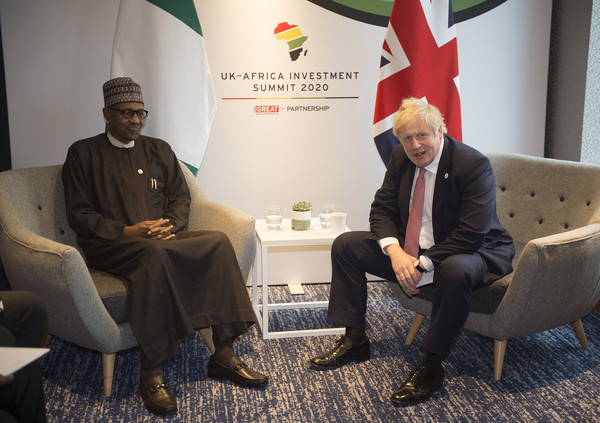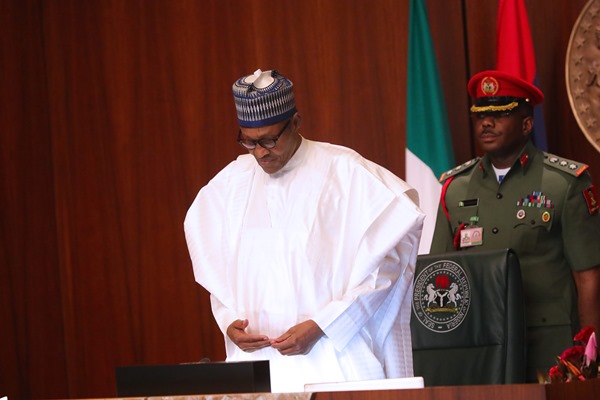
Before the exit of Britain from the European Union on January 31, 2020, the British Prime Minister, Boris Johnson embarked on an aggressive economic diplomacy aimed at expanding is market base. Incidentally, his first port of call was the huge and untapped African market, which is being cornered by China with its enticing infrastructural outlay in many of the countries in Africa.
The convocation of the UK-Africa Summit in London on January 20, 2020, was his launching pad for the planned new ties with Africa. Speaking at the Summit, Johnson told the African leaders that he wanted to make Britain their “investment partner of choice”.
“Our (immigration) system is becoming fairer and more equal between all our global friends and partners, treating people the same, wherever they come from,” he said, adding that the UK would be more open to migrants from Africa after Brexit as part of measures to boost trading ties.
“By putting people before passports we will be able to attract the best talent from around the world, wherever they may be,” he said.
He also promised an end to direct UK state investment in thermal coal mining or coal power plants overseas, saying London would focus on supporting a switch to low-carbon energy sources.
For Nigeria, there was a glimmer of hope that the country would benefit from the new economic drive of the UK as the federal government was able to secure commercial deals worth over ₦153.4 billion (about $503 million) from the Summit.
According to local media reports, the UK government, through the Department for International Trade (DIT), will provide an Investment Promotion Programme worth ₦13.1 billion for Nigeria and South Africa to stimulate Foreign Direct Investment and facilitate technology and knowledge transfer.
The reports added that other benefits announced at the summit included the newly launched £55m (₦26billion), Land Transformation Facility, a £320 million (₦152billion) UK Financial Sector Deepening Platform currently running in 45 Africa countries, including Nigeria.
The UK government, according to the reports, will invest up to £45 million in Nigeria, Kenya, and South Africa to support inclusive connectivity and digital literacy, build cyber-security capacity, and establish Tech Hubs to grow the digital economy.
In his assessment of the Summit, Buhari, noted that Brexit offered an opportunity for increased free trade across the Commonwealth and said that visas were the key issue.
Speaking in the vein, some Nigerian industrialists, economists and other stakeholders are of the view that Nigeria stands to gain from the new UK economic overtures to Africa.
For instance, Mr. Muda Yusuf, the Director-General of Nigeria’s premier chamber of Commerce, the Lagos Chamber of Commerce and Industry, noted that Brexit presents an opportunity for Nigeria and Britain to strengthen bilateral trade relations given that they have historical and cultural links, shared language, similar time-zone, and high-skilled manpower.
Yusuf told APA in an interview that there was prospect for more active support from the UK Export Finance (UKEF) and Nigeria’s NEXIM bank.
“More importantly, it is an opportunity for Nigeria to attract quality investment from the UK.
“However, investment decision is purely a business decision. This underscores the significance of creating an environment that offers good returns on investment in order to leverage the opportunities that BREXT offers.
“Capital would gravitate to locations where returns on investment are most attractive and where the investment climate inspires confidence,’’ Yusuf said.
According to him, it is imperative to fix key structural, policy and regulatory issues impeding the inflow of Foreign Direct Investments (FDIs) into the Nigerian economy.
Yusuf noted that diaspora remittances have become an important source of foreign exchange inflows into the Nigerian economy, currently estimated at over $20 billion.
“Brexit potentially has an impact on diaspora remittances depending on the consequential migration policies that come with it.
“If the policies are friendly, there are prospects for increased remittance flows to Nigeria from the UK. On the other hand, if the UK adopts stricter migration policies, it could result in a decline in this important source of revenue for Nigeria,’’ he said, adding that more than 200,000 Nigerians are currently in the UK, which is also a major source diaspora remittance.
Speaking recently on what Nigeria stands to gain from the exit of Britain from the EU, a Nigerian development economist, Prof. Ken Ife, said that Nigeria would benefit immensely from Britain’s exit from the EU. Ife said in a recent programme on Channels Television that trade relations between Nigeria and Britain was about 8 billion pounds and that it was bound to grow beyond that figure by 2024, according to the pledge by former British leader Theresa May.
He listed the solid minerals sector as a viable sector where Nigeria should strive to develop with the assistance of Britain. According to him, the education sector is another area that Nigeria can benefit from in the new dispensation since Nigeria already enjoys close and cordial relations with Britain. “We must use this opportunity to close in with this new deal,” he added.
For Dr. Lukman Oyelami, Department of Economics, University of Lagos, Distant Learning Institute, Brexit sends a bad signal to the active adherents of globalization and it is not a good news for many emerging and developing economies, including Nigeria.
He said that the initiative affords Britain to pursue independent economy and trade policies independent of the European Union.
Britain as one of the biggest importers of Nigeria’s crude and in recent times, may turn the table.
“Nigeria’s little trade surplus with UK may cease by the time Britain starts pursuing independent trade policies.
“Also, Britain is one of the leading advocate of green economy and this may affect their demand for Nigerian crude oil.
“Another perspective to this is that Nigeria has a huge population of its citizens working in Britain and sending huge remittances back to the country. Brexit may affect their status and ability to secure paid jobs and this will have negative consequences on the remittances,’’ he said.
No doubt, Nigeria is one of the UK’s biggest trading partners in Africa and the trade relations between the two countries have grown considerably over the years.
According to the official data from the National Bureau Statistics (NBS), the trade volume between both countries in 2016, 2017 and 2018 stood at $2.2 billion (N663.5 billion), US$2.6 billion (N786.1 billion) and US$3.4 billion (N1.03 trillion) respectively.
Between January and September 2019, both countries traded US$2.24 billion (N684.3) billion worth of goods with each other. Nigeria’s exports to the UK are dominated by oil products and the UK’s exports to Nigeria comprise machinery, manufactured goods, chemicals and food products. The UK is currently a major source of investment inflows to Nigeria, accounting for US$9.7 billion of total US$19.7 billion attracted between January and September 2019.
In addition, the Nigerian government has been offered another opportunity to drive its quest to improve economic ties with Britain when officials of the two countries meet at the forthcoming third UK-Nigeria Economic Development Forum (EDF).
Nigeria’s Minister of State, Industry, Trade, and Investment, Marian Katagum, said on Tuesday in Abuja, while inaugurating the planning committee for the ministerial meeting of the third UK-Nigeria EDF that third forum, which is scheduled to hold in Nigeria in March this year would provide an opportunity to showcase Nigeria’s expanding investment opportunities.
She recalled that the Minister of Industry, Trade and Investment, Mr. Adeniyi Adebayo, attended the second ministerial meeting of the UK-Nigeria EDF held in London on Oct. 10, 2019, where the governments of UK and Nigeria restated the strategic importance of their bilateral economic ties.
According to local media reports, the minister stated that at the end of the second meeting, positive actions taken by both countries acknowledged trade standards, business linkages, financial and business services, micro-insurance and investment promotion.
She noted that both countries agreed to work together to generate maximum benefit as “our trade relationship has not realised maximum potential”.
Nigeria, according to the minister, needs to plan strategically to ensure that the country benefits positively from its relation with the UK.













